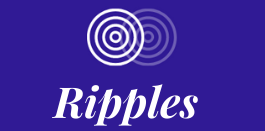Monday 25 September 2017
"Mental Ill Health Across Children of the New Century"
"This briefng paper summarises the prevalence of mental health problems among children taking part in the Millennium Cohort Study (MCS), which is a representative group of children born in the UK at the start of this century."
Link
"Childhoods in a Digital World"
"So swift has been the pace of change that future historians will likely view this period as an overarching era of change, much the same as we now view periods such as the Enlightenment or the Industrial Revolution. Indeed, ecologists and economists have identified the start of this millennium as a new human epoch – the Anthropocene – because of the fundamental shift in society brought by our mass access to commerce, automation and data. And so, internet access is both the biggest challenge but also the biggest opportunity for young people growing up in the UK today. "
Source: Barnardo’s Date: 19 September 2017
LinkTuesday 5 September 2017
What happens when google knows you're depressed?
"Google users should consider the potential damage the search
engine's new depression questionnaire could do to their digital profile in
the eyes of insurers and employers."
Link -
CAMHS shortfall is having a deadly affect on young people
"Why are the regulators and the Government deaf to the needs
of some of the most vulnerable young people in our society?
Firstly, there is a lack of understanding that children
don’t suddenly become sick, then have a few months treatment and are cured.
Meaningful provision means preventative steps must be taken to protect our
young minds from an early age.
We need far more robust education in our schools and care
homes to identify the signs of mental health – and strategies and support put
in place to help these worried youngsters.
It is also crucial that there are ‘step down’ facilities so
young people have the support to re-integrate them into society and are not
just dumped back in the situation that caused their illness in the first
instance."
Link -
Subscribe to:
Posts (Atom)
